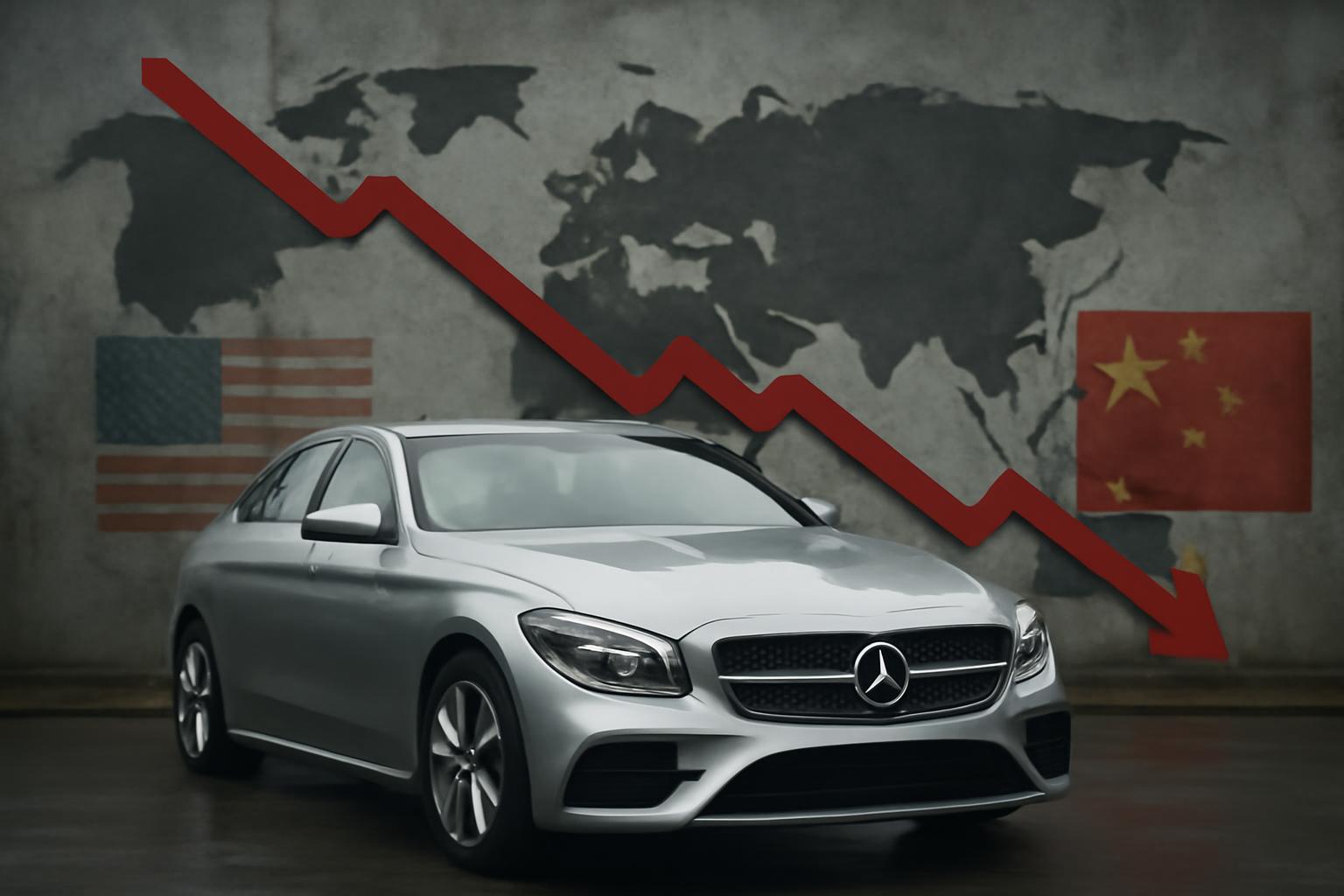Mercedes-Benz, a name once synonymous with the unassailable dominance of German engineering and luxury, now finds itself battered by the winds of protectionism and economic turbulence. In the first half of 2025, their profits have crumbled by more than half—a staggering 55.8% collapse—primarily due to aggressive US import tariffs and languishing sales in China. Instead of transferring the brunt of these punitive levies to their customers, Mercedes chose to bear the pain itself, sacrificing its margins in a desperate bid to protect market share. As a result, the company’s flagship models, notably the S-Class, have become collateral in a battle where state edicts and geopolitical rivalry undercut the fruits of voluntary exchange and productive specialization.
What a testament to the folly of intervention! Here we see the result of arbitrary barriers erected by governments, cloaked in the rhetoric of “protecting domestic industry,” but inevitably causing destruction instead. The American tariffs—a leap from 2.5% to a crippling 27.5%—do not add wealth to a nation. They only redistribute resources in wasteful patterns, punishing both consumers who pay more for less and producers whose reach is constrained by borders made artificially insurmountable. The losses—here quantified at some €360 million—are not just numbers in a ledger, but the squandered livelihoods and diminished potential of untold individuals in both exporting and importing countries.
Meanwhile, the fierce competition and economic malaise in China are reminders that prosperity is not guaranteed nor permanent, and that the coercive proclivities of states matter as much as, if not more than, mere engineering prowess. The fact that Mercedes is resorting to drastic cost-cutting—a euphemism, so often, for making honest workers redundant—underscores how the artificial shocks of trade policy and the arbitrary hand of economic regulation spread misery well beyond balance sheets. Restructuring costs running into the hundreds of millions cannot build a single engine or improve a single life; they are a testimony to enforced waste.
And what are we to make of Ola Källenius’s insistence that these results are “robust,” given the market climate? It is an apology for mediocrity forced upon excellence. Robustness lies in adaptation and the discovery processes of the market, not in resilience to arbitrary impediments imposed from above. The only real solution is the restoration of the free movement of goods—the re-liberalization of trade both eastward and westward—which alone can revive confidence for workers, shareholders, and consumers alike.
This painful episode should remind us what I have long argued: prosperity and innovation spring not from top-down engineering—not from the grandiose designs of politicians and bureaucrats—but from a decentralized order where knowledge, initiative, and competition are permitted to flourish across borders. Only by dismantling these destructive barriers and relinquishing the hubris of planning can we hope to see Mercedes-Benz, and indeed the whole economic order, return to the path of progress and genuine wealth creation.
